MercoPress. South Atlantic News Agency
Tag: economic growth
-
Thursday, April 11th 2019 - 09:31 UTC
The Trouble with Argentina’s Economy
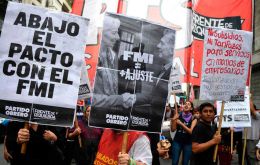
With sustained economic growth, Argentina would be able to avoid another debt crisis. Although there are no silver bullets to put the economy on a more stable path, changing current macroeconomic policies would at least give the country a chance.
-
Thursday, April 4th 2019 - 09:41 UTC
Petrobras finally shows positive results and with strong growth prospects

Petrobras has finally announced a positive annual result, five years after the Lava Jato corruption probe left the Brazilian state-controlled company with spiraling debts. The firm closed the year with a US$ 25.8bn net profit, the highest figure in seven years, and a total of R$20.2bn (US$ 5.27bn) in asset sales.
-
Wednesday, March 13th 2019 - 09:20 UTC
UK economy performance weak: 0.2% expansion in three months to January

The UK economy grew by 0.2% in the three months to January, matching the growth of the previous three months. The report from the Office for National Statistics (ONS) showed a pick-up in activity in January when the economy expanded by 0.5%.
-
Friday, March 8th 2019 - 09:15 UTC
Euro zone interest rates frozen for twelve months given overall slowdown
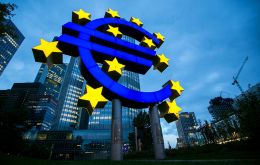
Interest rates in the Euro zone will not rise until next year at the earliest, the European Central Bank has signaled amid evidence of a slowdown in the 19 countries using the single currency. The ECB also unveiled a round of fresh stimulus, offering banks cheap loans to try to help revive the economy.
-
Wednesday, March 6th 2019 - 08:20 UTC
China's National Congress told the economy faces a “tough struggle ahead”
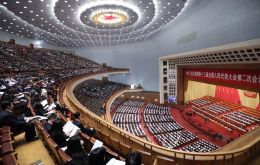
China's number two leader Li Keqiang has warned the country faces “a tough struggle,” as he laid out plans to prop up the world's second-largest economy. Opening the annual session of China's parliament, he forecast a slower growth of 6% - 6.5% this year, down from a target of around 6.5% in 2018.
-
Tuesday, March 5th 2019 - 09:55 UTC
World markets fall as China cuts its economic growth target

Asian shares stepped back on Tuesday after China cut its economic growth target and pledged measures to support the economy amid growing challenges from rising debt and a dispute over trade and technology with the United States. Australian shares dropped 0.6% while South Korea's Kospi lost 0.5%. MSCI's broadest index of Asia-Pacific shares outside Japan dipped 0.2% and Japan's Nikkei dropped 0.3%.
-
Thursday, February 28th 2019 - 09:15 UTC
US trade deficit widens sharply in December: imports increase, exports drop

The US trade deficit widened sharply in December as slowing global demand and a strong dollar weighed on exports, another sign that economic growth slowed in the fourth quarter. Other data from the Commerce Department on Wednesday showed new orders for US-made goods barely rose in December and business spending on equipment was much weaker than previously thought, pointing to a softening in manufacturing activity.
-
Monday, February 4th 2019 - 08:50 UTC
Brazilian industrial output up 1.1% last year compared to 2017
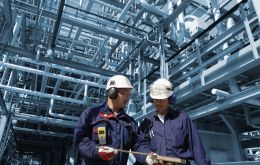
Brazil's industrial output increased 1.1% in 2018, the Brazilian Institute of Geography and Statistics (IBGE) announced. According to IBGE, though the annual figures were positive, the industrial sector grew at a slower pace than it registered in 2017, when production increased 2.5%.
-
Friday, January 18th 2019 - 10:12 UTC
Evo Morales’ Bolivia: Abiding the constitution or ensuring the results of sustained economic growth

The Economist has published a piece on Bolivia and its first indigenous president, Evo Morales, who has managed the economy of the continent's poorest country with sustained success during thirteen years. But he has also a strong authoritarian attitude, given his dominance of government branches, and the support of the electorate, mostly indigenous or mestizo. In this scenario, he is running for a fourth consecutive presidential period, which the Constitution bans.
-
Thursday, January 10th 2019 - 08:28 UTC
World Bank lowers Brazil tepid growth estimates both in 2018 and 2019
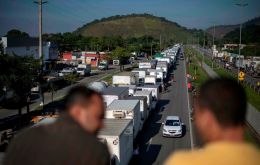
The World Bank lowered its growth estimates for Brazil both in 2018 and this year. Last June the multilateral organization bi-annual report indicated that Latin America's largest economy would advance 2.4%, but it has now reduced that to 1.2%, one of the greatest falls for any country in the report.
